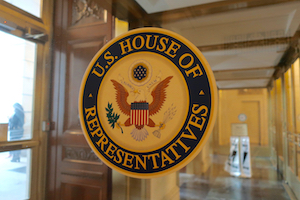Legislation that would make it easier for retirement plan sponsors to include annuities as a default option in their defined contribution plans has been reintroduced in the House of Representatives by two key members of Congress.
 Reps. Donald Norcross (D-NJ) and Tim Walberg (R-MI) on June 9 reintroduced the Lifetime Income for Employees (LIFE) Act (H.R. 3942). The legislation was referred to the House Committee on Education and the Workforce, where both members serve.
Reps. Donald Norcross (D-NJ) and Tim Walberg (R-MI) on June 9 reintroduced the Lifetime Income for Employees (LIFE) Act (H.R. 3942). The legislation was referred to the House Committee on Education and the Workforce, where both members serve.
While the SECURE Act of 2019 provided a fiduciary safe harbor for the selection of a lifetime income provider, this bill would go one step further. More specifically, the bill would allow fiduciaries to make default investment arrangements in annuity contracts upon providing certain notice to plan participants and complying with certain prohibitions on liquidity restrictions.
Among the bill’s requirements:
- The annuity contract cannot impose a liquidity restriction on the transfer of invested amounts during the 180-day period beginning on the date of the initial investment in such contract by the participant or beneficiary.
- The fiduciary must ensure that each participant or beneficiary is provided not later than 30 days before the date of the imposition of a liquidity restriction written notice that explains, among other things:
- the circumstances under which assets in the account may be invested on behalf of the participant or beneficiary in the annuity contract;
- the rights of the participant or beneficiary to direct or transfer amounts invested, or to be invested, in an annuity contract to other investment alternatives available under the plan;
- the general workings of the annuity contract; and
- how a participant or beneficiary may obtain additional information, including a copy of the contract.
In addition, the fiduciary cannot allocate more than 50% of any periodic contribution or, immediately after a rebalancing of account investments, 50% of the value of the assets of the account, to the annuity contract.
Last Congress, Norcross—in touting a need for the legislation—cited data showing that the number of private-sector workers receiving lifetime benefits from a traditional defined benefit pension plan has declined from 60% in the 1980s to only 4% today.
There was speculation that the bill might be added to the SECURE 2.0 Act enacted late last year, but it did not make it out of committee.

